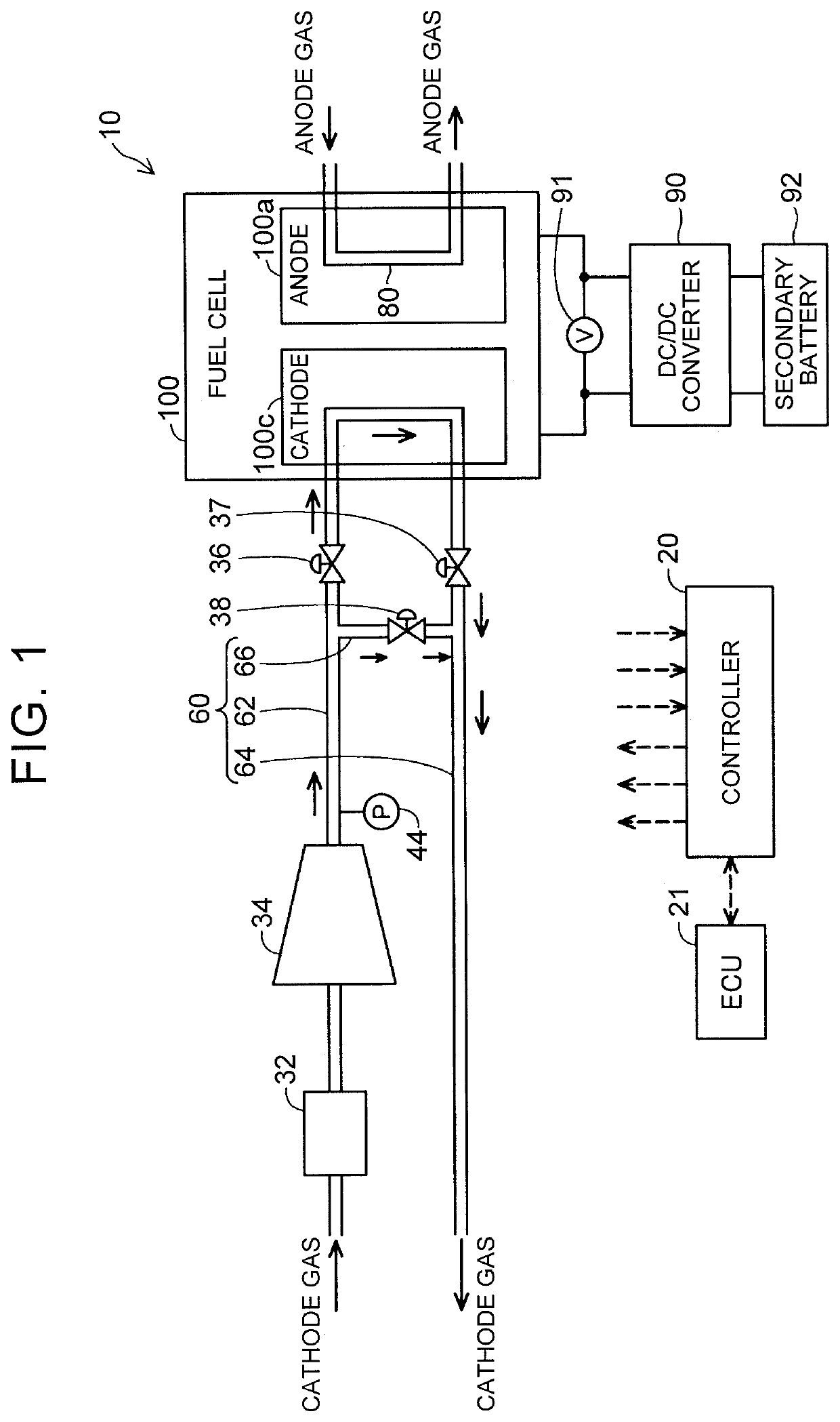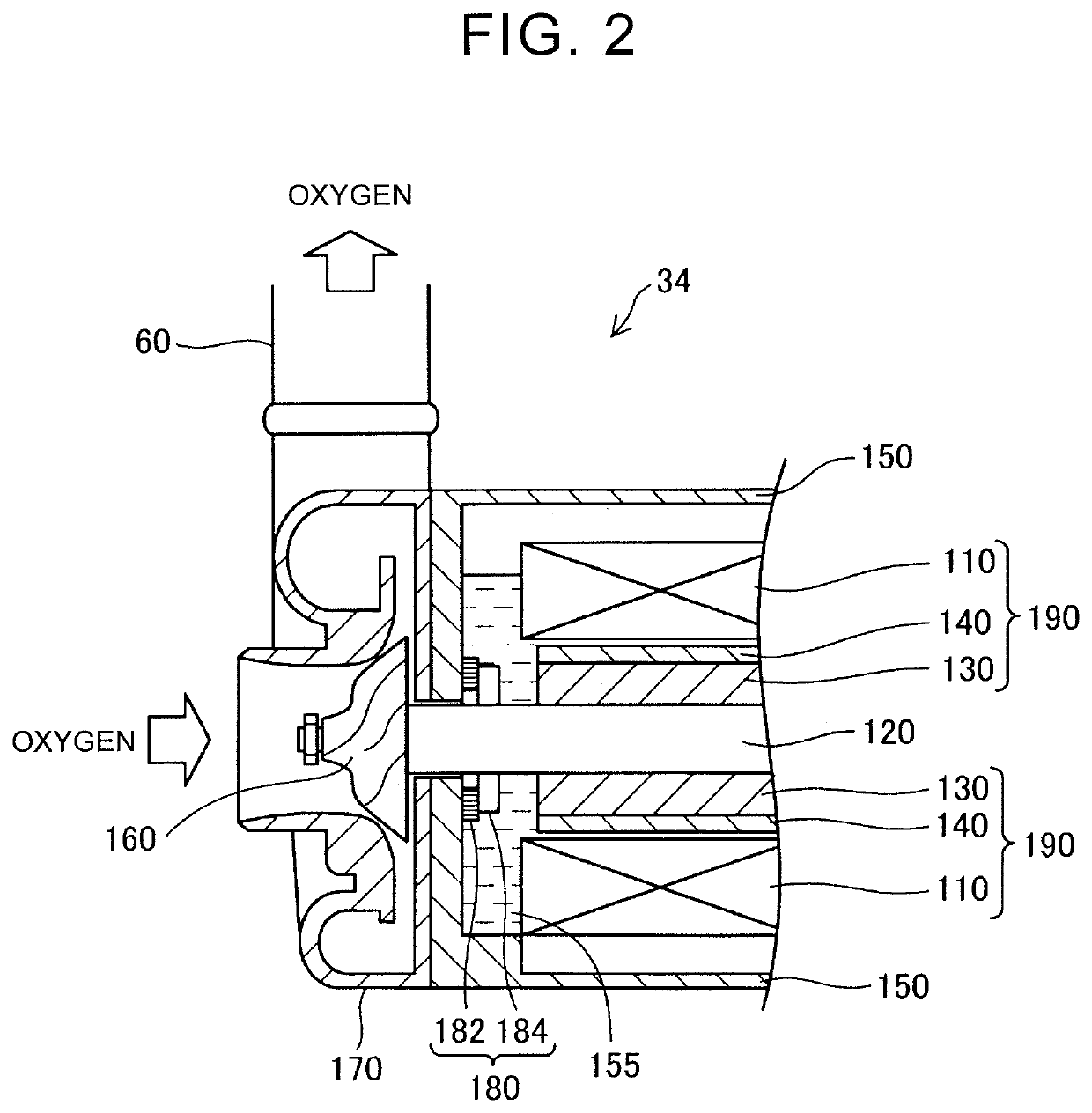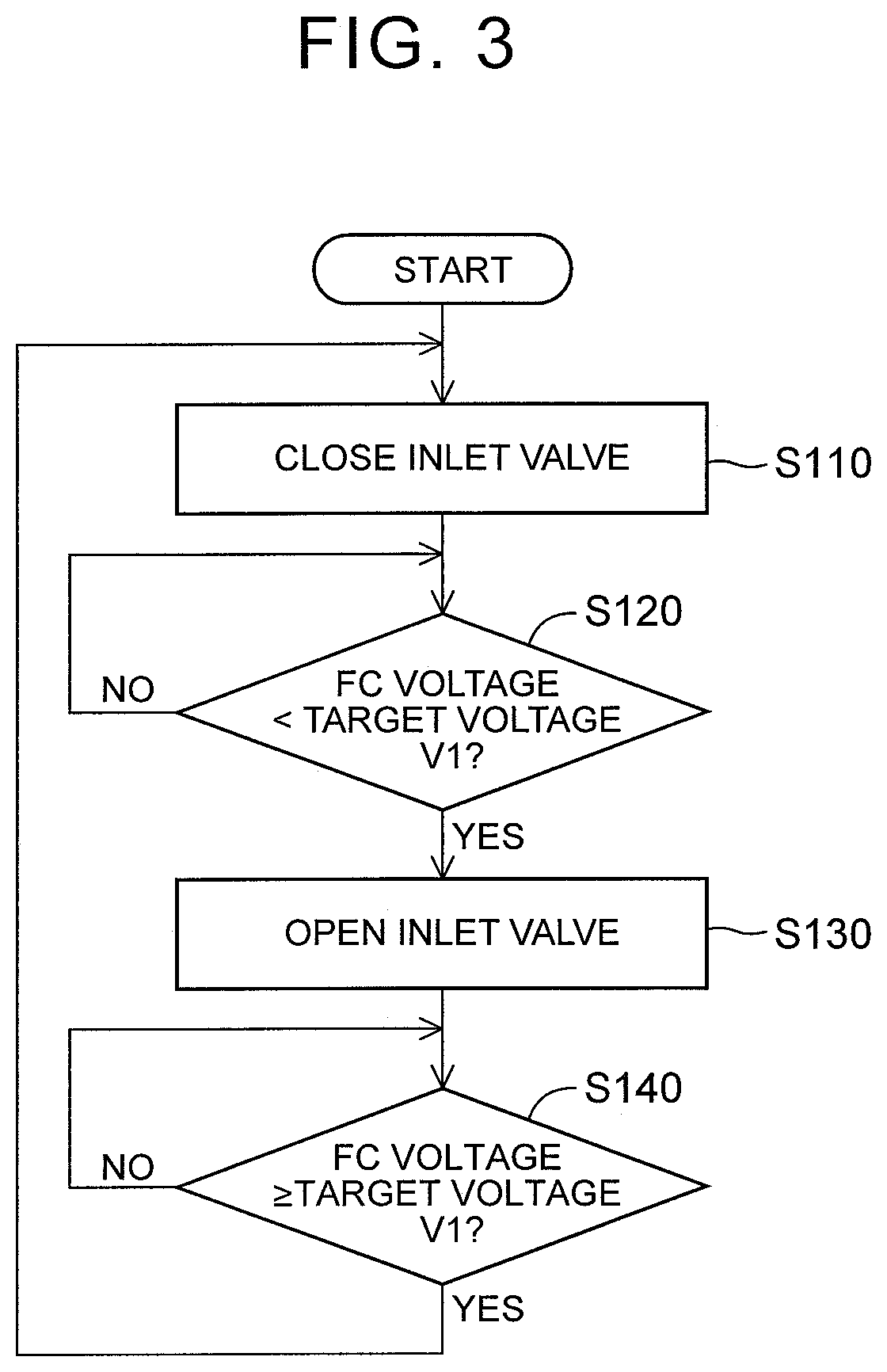Fuel cell system and method of controlling the same
a fuel cell and system technology, applied in the direction of fuel cell control, fuel cell, electric generators, etc., can solve the problems of increasing the variation in the cell voltage, the inability to perform cathode gas supply to the fuel cell stack and the stop of the supply, etc., to reduce the amount of cathode gas supplied by the turbo compressor, the effect of less likely or unlikely to excessively ris
- Summary
- Abstract
- Description
- Claims
- Application Information
AI Technical Summary
Benefits of technology
Problems solved by technology
Method used
Image
Examples
first embodiment
A. First Embodiment
[0020]FIG. 1 shows a fuel cell system 10 as one embodiment of the disclosure. The fuel cell system 10 is installed on a fuel cell vehicle, for example. In this embodiment, the fuel cell system 10 includes a fuel cell stack 100, controller 20, air flow meter 32, turbo compressor 34, cathode gas passage 60, and anode gas passage 80.
[0021]The fuel cell stack 100 is a polymer electrolyte fuel cell that is supplied with anode gas (e.g., hydrogen gas) and cathode gas (e.g., air) as reaction gases, to generate electric power. The fuel cell stack 100 is composed of a plurality of unit cells (not shown) stacked together. The anode gas is supplied from an anode gas tank (not shown), and passes through the anode gas passage 80, to be supplied to an anode 100a of the fuel cell stack 100 and used for electrochemical reaction. A portion of the anode gas which was not used for electrochemical reaction is discharged as offgas to the outside of the fuel cell stack 100. On the othe...
second embodiment
B. Second Embodiment
[0055]FIG. 5 is a flowchart of c cathode-gas flow rate change control according to a second embodiment. The second embodiment is different from the first embodiment in that step S105 and step S200 are additionally provided, but the first and second embodiments are identical with each other in other respects.
[0056]In the second embodiment, after the inlet valve 36 is closed (step S110), the controller 20 determines whether the operation to close the inlet valve 36 is performed for the first time under the current cathode-gas flow rate change control. When the operation to close the inlet valve 36 is performed for the first time under the current cathode-gas flow rate change control (step S105: YES), the controller 20 performs a malfunction determination process (step S200). On the other hand, when the operation to close the inlet valve 36 is not performed for the first time under the current cathode-gas flow rate change control (step S105: NO), the control proceed...
third embodiment
C. Third Embodiment
[0064]FIG. 8 is a flowchart of cathode-gas flow rate change control according to a third embodiment. The third embodiment is different from the first embodiment in that step S150 and step S160 are additionally provided, but is identical with the first embodiment in other respects.
[0065]In the third embodiment, when the controller 20 determines that the FC voltage is smaller than the target voltage V1 (step S140: NO), the controller 20 determines whether the FC voltage is smaller than a lower-limit voltage V2 (step S150). The lower-limit voltage V2 is a voltage at which the catalyst included in the fuel cell stack 100 switches between oxidation reaction and reduction reaction, for example, and is obtained in advance by experiment or simulation. In this embodiment, the controller 20 stores the lower-limit voltage V2 in advance. In this embodiment, the lower-limit voltage V2 is smaller than the target voltage V1.
[0066]When the controller 20 determines that the FC vol...
PUM
| Property | Measurement | Unit |
|---|---|---|
| flow rate | aaaaa | aaaaa |
| flow rate | aaaaa | aaaaa |
| flow rate | aaaaa | aaaaa |
Abstract
Description
Claims
Application Information
 Login to View More
Login to View More - R&D
- Intellectual Property
- Life Sciences
- Materials
- Tech Scout
- Unparalleled Data Quality
- Higher Quality Content
- 60% Fewer Hallucinations
Browse by: Latest US Patents, China's latest patents, Technical Efficacy Thesaurus, Application Domain, Technology Topic, Popular Technical Reports.
© 2025 PatSnap. All rights reserved.Legal|Privacy policy|Modern Slavery Act Transparency Statement|Sitemap|About US| Contact US: help@patsnap.com



